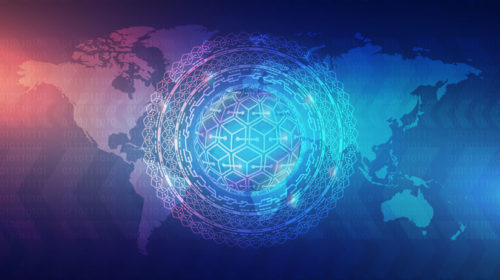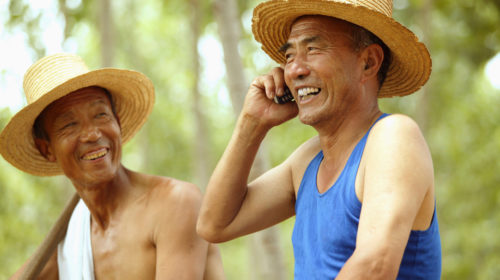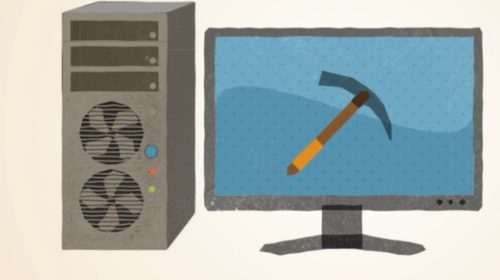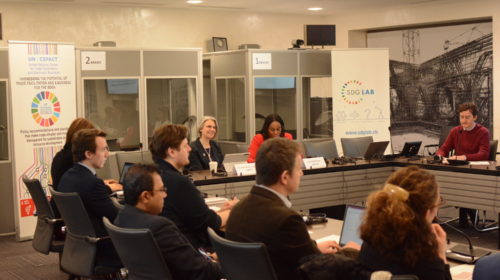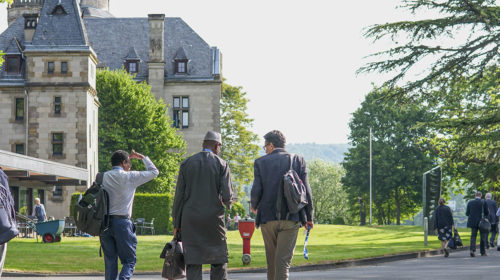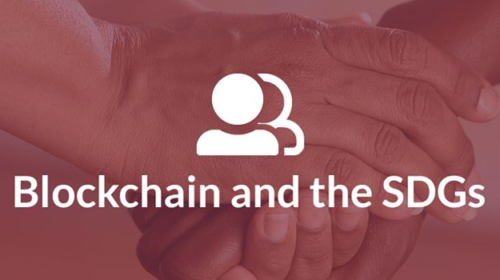With the advent of Blockchain technology and its potential to disrupt the way the world has been doing business for many centuries, there is an intense amount of gossip and buzz and an ocean of online literature on the topic. The blockchain revolution is considered analogous to the internet revolution in 1994 but at the same time a diverse and a large population in the developed and developing world, alike, do not even know if there is something called Blockchain, let alone what it really is or going to be,…
Tag: Sustainable Development Goals
Blockchain and Its Application for Agri Policy Makers – 5 Innovative Use Cases..
Blockchain has been gaining momentum and innovative companies across the globe are coming up with various applications for it. Nearly $4bn was poured in by venture funds into Blockchain startups in 2018. Can this technology really have application for the Agriculture public policy makers ? In the last few weeks, I have had opportunity to meet and discuss with policy makers in South East Asian countries on various applications of Blockchain relevant for them. Here are some of their most pressing use cases: Food Traceability- Food safety is a big…
Blockchain research to support Sustainable Development Goals
UNDP is partnering with Blockchain, the world’s leading software platform for digital assets, the UN Refugee Agency (UNHCR) and the World Economic Forum (WEF) to explore the use of block chain technology for development. In a pioneering white paper titled “The Future is Decentralised”, Blockchain and UNDP offer potential solutions to a wide range of issues, including the conservation of natural resources, economic growth, and financial inclusion and security, for the benefit of our common humanity. The Future is Decentralised provides a first step in helping policy makers, regulators, and…
UNECE and SDG Lab facilitate UN inter-agency exchange on blockchain for the SDGs
APRIL 3, 2019 Blockchain, a form of Distributed Ledger Technology, is providing new frontiers of innovation for sustainable development through decentralized authentication processes secured by cryptography. Blockchain technologies have developed rapidly over the last few years and have the potential to transform fundamental mechanisms that define the economy. Many UN agencies have seen the potential of this technology and are exploring how it can help achieve different outcomes to support implementation of the 2030 Agenda. It is therefore opportune for inter-agency actors in this space to connect and engage together,…
The UNSSC Knowledge Centre for Sustainable Development Bonn, Germany
With the support from the Federal Government of Germany the United Nations System Staff College opened the “Knowledge Centre for Sustainable Development” on 1 January 2016 in Bonn. The Centre was established to equip the UN and its partners with the knowledge, skills, and behaviours to implement the 2030 Agenda for Sustainable Development as well as the Paris Agreement under the United Nations Framework Convention on Climate Change. The Centre supports policy and operational work of the UN through the development of learning tools, platforms for interaction and a mature set…
Blockchain and the Sustainable Development Goals
By: Laura Marissa Cullell Marketing & Operations Officer Can technology progress human rights? Provide humanitarian aid? Help combat Climate Change? Address issues of identity, trafficking, and provide access to food? The answer to these questions is yes. And Blockchain is a fantastic space to explore these issues right now. In the last article of our series on Unique and Interesting Use Cases for Blockchain, I explore some of the applications of blockchain to achieve the UN Sustainable Development Goals. Part I explored just some of the use cases of this…
Blockchain Could Help Achieve The UN’s Sustainable Development Plan
Post by: Irfan Jafrey In September 2015, the 193 member countries of the United Nations adopted a developmental agenda to end poverty, protect the planet, pursue peace and ensure prosperity and well-being for all. This agenda was called the Sustainable Development Goals (SDGs). The 17 SDGs were built on three core elements: economic growth, social inclusion and environmental protection. These all aim to bring nations together to support one cause — a sustainable future for generations to come. With this, each goal is interconnected in that the success of one…


